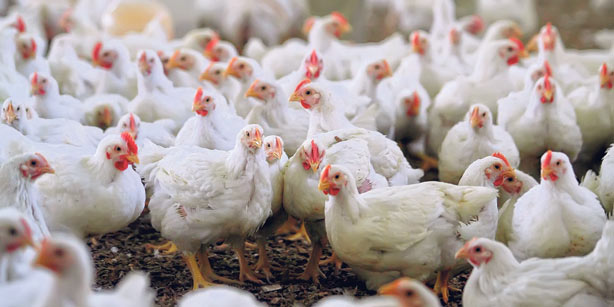Support growing for Better Chicken Commitment across Europe

Retailers and poultry firms are transitioning towards the Better Chicken Commitment requirements despite an international backdrop of the Covid-19 pandemic, the war in Ukraine, rising inflation and the continued prevalence of avian influenza.
Over 350 companies in Europe and the UK have so far signed up to the Better Chicken Commitment, and the 2022 ChickenTrack reports on 73 commitments made by 60 companies selected on their geographic relevance and size.
It shows that 31 (42%) of the commitments (across 27 companies) have made progress, with 12 commitments (16%) reporting 100% compliance with at least one of the Better Chicken Commitment criteria. However, more than half of commitments (42) across 37 companies (58%) are not reporting progress at all.
Only Norwegian producer, Norsk Kylling, is 100% compliant across its entire chicken production and just 4 company commitments (5%) report progress against full Better Chicken Commitment compliance – REMA 100 at 96%, Eroski at 39%, Elior at 22% and IKEA at 3%.
ChickenTrack details improvements across the 6 specific Better Chicken Commitment criteria:
- Stocking density (the most reported criteria for 25 commitments in 2022), average transition currently standing at 30%.
- Breed change (reported for 21 commitments), average transition 21%.
- Natural light provisions (reported for 23 commitments), average transition 43%.
- Enrichment provision (reported for 24 commitments), average transition 47%.
- Controlled atmospheric stunning (CAS) (reported for 19 commitments), average transition 54%)
- Auditing to Better Chicken Commitment compliance – just 1 company, Marks and Spencer, has achieved this.
In the UK, there have been more than 120 commitments from both national and international companies – most coming from food outlets and the out-of-home sector, which includes caterers. However, 2 of the 6 UK producers, PD Hook (Hatcheries) Ltd. and 2 Sisters Food Group, have pledged to supply chicken to the Better Chicken Commitment standard. So far, just 2 UK retailers – Marks and Spencer and Waitrose – have signed up, and while discounters Aldi and Lidl have signed up in other European nations, they have yet to do so in the UK.
Vivienne Harris, Marks and Spencer agriculture manager, said she was delighted the company, through its Oakham Gold brand, had been the first brand in the UK to be Better Chicken Commitment compliant: “We want to keep raising the bar to improve chicken welfare, and our slower-growing birds are now more active and resilient. Since the introduction of Oakham Gold, we have received lots of positive feedback from our customers.”
Other UK producers have introduced a Better Chicken Commitment-compliant fresh chicken tier, but typically this makes up a small proportion of their full chicken offer. Tesco introduced its Right to Roam range in April 2020, and Morrisons its Space to Roam range in February 2021. Sainsbury’s announced plans to reduce the stocking density of its own-brand chicken to 30kg/sqm by March 2023, but has yet to commit to a breed change.
“Higher welfare chicken should be a priority for all food companies…”
Compassion in World Farming says retailer commitments are essential to help build supply at pace and scale and to enable market access for others. It points to France, where since September 2021, all the major French retailers have signed up to the Better Chicken Commitment, creating a dynamic impetus in the market.
Beatrice Javary, responsibility and social innovation director at Auchan Retail France, said the firm had joined the Better Chicken Commitment in 2019, offering a range of fresh chicken which incorporates several of the Better Chicken Commitment criteria, such as slower-growing breeds, reduced stocking density and natural light: “Better Chicken Commitment is an essential part of our approach, and this transparency is appreciated by everyone in our supply chain and our consumers.”
Dr Tracey Jones, global director for food business at Compassion in World Farming, added: “Higher welfare chicken should be a priority for all food companies. Chickens are sentient beings and deserve a good quality of life as well as a humane end. By using more robust breeds and providing them with better living conditions they can live longer, healthier and more fulfilled lives. It is possible and what consumers expect.”
Read also
Wheat in Southern Brazil Impacted by Dry Weather and Frosts
Oilseed Industry. Leaders and Strategies in the Times of a Great Change
Black Sea & Danube Region: Oilseed and Vegoil Markets Within Ongoing Transfor...
Serbia. The drought will cause extremely high losses for farmers this year
2023/24 Safrinha Corn in Brazil 91% Harvested
Write to us
Our manager will contact you soon



